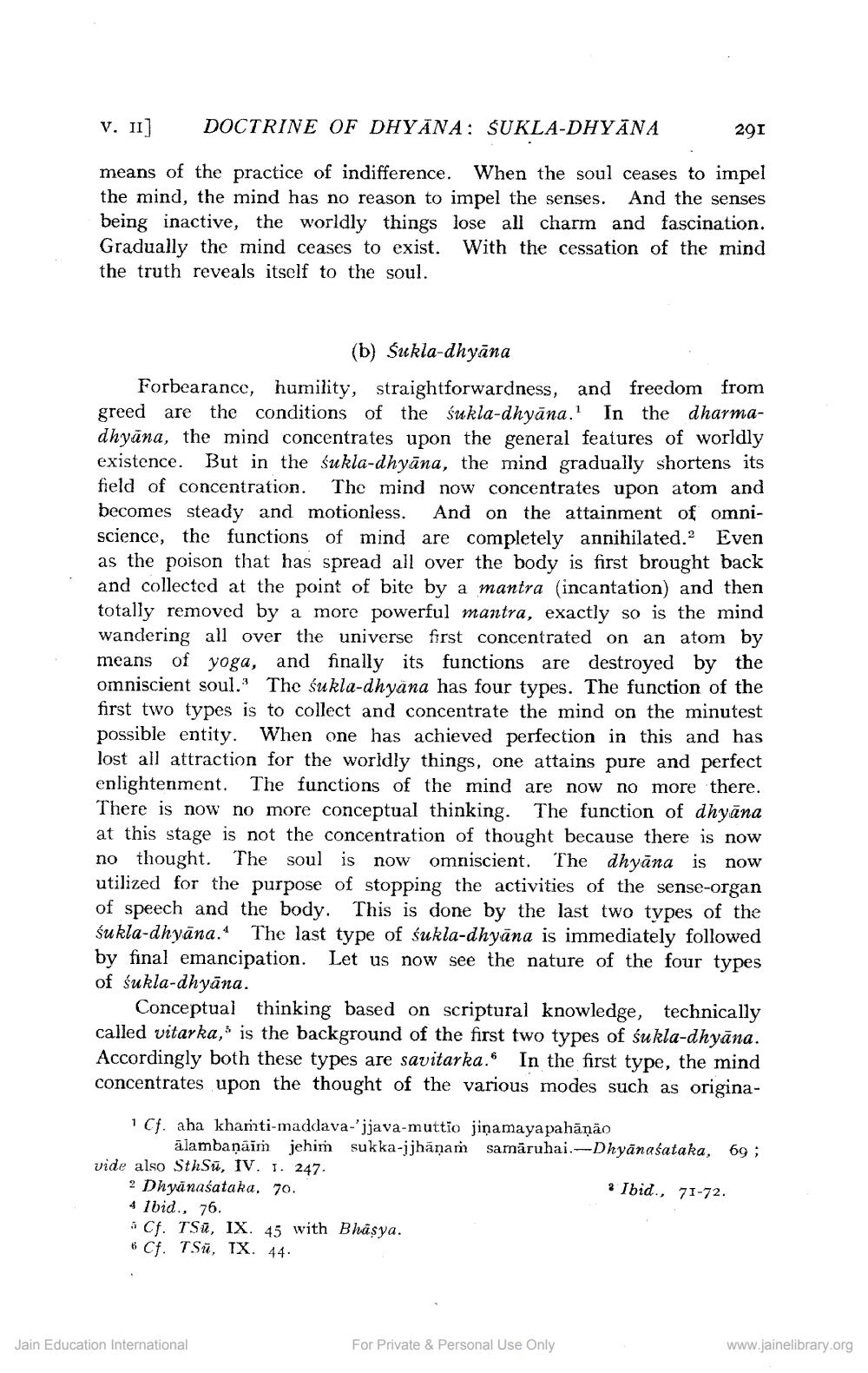________________
V. 11]
DOCTRINE OF DHYANA: SUKLA-DHYANA
291
means of the practice of indifference. When the soul ceases to impel the mind, the mind has no reason to impel the senses. And the senses being inactive, the worldly things lose all charm and fascination. Gradually the mind ceases to exist. With the cessation of the mind the truth reveals itself to the soul.
(b) śukla-dhyāna
Forbearance, humility, straightforwardness, and freedom from greed are the conditions of the śukla-dhyāna. In the dharmadhyāna, the mind concentrates upon the general features of worldly existence. But in the śukla-dhyāna, the mind gradually shortens its field of concentration. The mind now concentrates upon atom and becomes steady and motionless. And on the attainment of omniscience, the functions of mind are completely annihilated. Even as the poison that has spread all over the body is first brought back and collected at the point of bite by a mantra incantation) and then totally removed by a more powerful mantra, exactly so is the mind wandering all over the universe first concentrated on an atom by means of yoga, and finally its functions are destroyed by the omniscient soul.' The śukla-dhyana has four types. The function of the first two types is to collect and concentrate the mind on the minutest possible entity. When one has achieved perfection in this and has lost all attraction for the worldly things, one attains pure and perfect enlightenment. The functions of the mind are now no more there. There is now no more conceptual thinking. The function of dhyāna at this stage is not the concentration of thought because there is now no thought. The soul is now omniscient. The dhyāna is now utilized for the purpose of stopping the activities of the sense-organ of speech and the body. This is done by the last two types of the śukla-dhyāna. The last type of śukla-dhyāna is immediately followed by final emancipation. Let us now see the nature of the four types of śukla-dhyāna.
Conceptual thinking based on scriptural knowledge, technically called vitarka,' is the background of the first two types of sukla-dhyāna. Accordingly both these types are savitarka.. In the first type, the mind concentrates upon the thought of the various modes such as origina
1 Cf. aha khamti-maddava-jjava-muttio jinamaya pahāņão
ālambaņāim jehim sukka-jjhäņam samāruhai.--Dhyānaśataka, 69; vide also SthSü, IV. 1. 247. 2 Dhyānaśataka. 70.
3 Ibid., 71-72. 4 Ibid., 76. . Cf. Tsa, IX. 45 with Bhâsya. 6 Cf. TSü, IX. 44.
Jain Education International
For Private & Personal Use Only
www.jainelibrary.org




